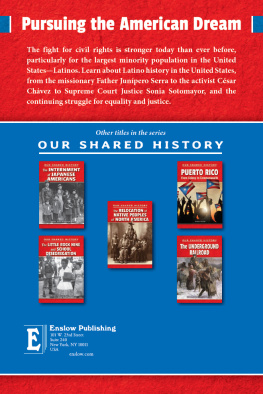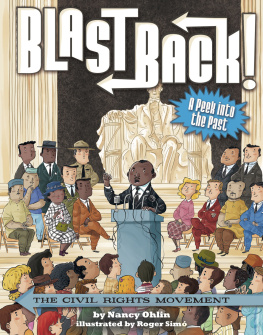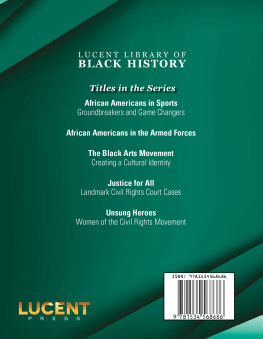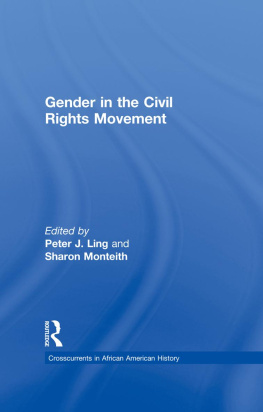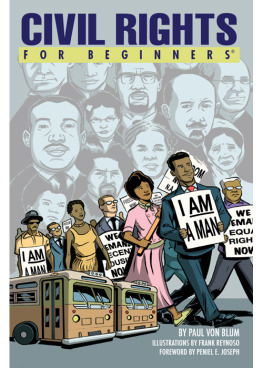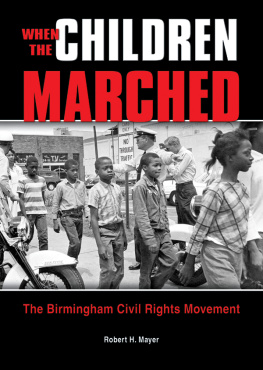Sonia Song-Ha Lee - Building a Latino Civil Rights Movement
Here you can read online Sonia Song-Ha Lee - Building a Latino Civil Rights Movement full text of the book (entire story) in english for free. Download pdf and epub, get meaning, cover and reviews about this ebook. year: 2014, publisher: UNC Press Books, genre: Politics. Description of the work, (preface) as well as reviews are available. Best literature library LitArk.com created for fans of good reading and offers a wide selection of genres:
Romance novel
Science fiction
Adventure
Detective
Science
History
Home and family
Prose
Art
Politics
Computer
Non-fiction
Religion
Business
Children
Humor
Choose a favorite category and find really read worthwhile books. Enjoy immersion in the world of imagination, feel the emotions of the characters or learn something new for yourself, make an fascinating discovery.

- Book:Building a Latino Civil Rights Movement
- Author:
- Publisher:UNC Press Books
- Genre:
- Year:2014
- Rating:5 / 5
- Favourites:Add to favourites
- Your mark:
- 100
- 1
- 2
- 3
- 4
- 5
Building a Latino Civil Rights Movement: summary, description and annotation
We offer to read an annotation, description, summary or preface (depends on what the author of the book "Building a Latino Civil Rights Movement" wrote himself). If you haven't found the necessary information about the book — write in the comments, we will try to find it.
Building a Latino Civil Rights Movement — read online for free the complete book (whole text) full work
Below is the text of the book, divided by pages. System saving the place of the last page read, allows you to conveniently read the book "Building a Latino Civil Rights Movement" online for free, without having to search again every time where you left off. Put a bookmark, and you can go to the page where you finished reading at any time.
Font size:
Interval:
Bookmark:
Heather Ann Thompson
Rhonda Y. Williams
Peniel E. Joseph
Matthew D. Lassiter
Daryl Maeda
Barbara Ransby
Vicki L. Ruiz
Marc Stein
Justice, Power, and Politics is available at
http://justicepowerandpolitics.com/.
All rights reserved
Designed and set in Quadraat types by Rebecca Evans
Manufactured in the United States of America
Lee, Sonia Song-Ha.
Building a Latino civil rights movement : Puerto Ricans, African Americans, and the pursuit of racial justice in New York City / Sonia Song-Ha Lee.
pages cm. (Justice, power, and politics)
Includes bibliographical references and index.
ISBN 978-1-4696-1413-7 (cloth : alk. paper)
ISBN 978-1-4696-1414-4 (ebook)
1. Puerto RicansCivil rightsNew York (State)New YorkHistory20th century. 2. Puerto RicansNew York (State)New YorkPolitics and government20th century. 3. Puerto RicansNew York (State)New YorkSocial conditions20th century. 4. African AmericansCivil rightsNew York (State)New YorkHistory20th century. 5. African AmericansNew York (State)New YorkPolitics and government20th century. 6. Civil rights movementsNew York (State)New YorkHistory20th century. 7. African AmericansRelations with Hispanic Americans 8. New York (N.Y.)Ethnic relations. 9. New York (N.Y.)Race relations. I. Title.
F128.9.P85L44 2014 323.1168729507471dc23 2013047867
Font size:
Interval:
Bookmark:
Similar books «Building a Latino Civil Rights Movement»
Look at similar books to Building a Latino Civil Rights Movement. We have selected literature similar in name and meaning in the hope of providing readers with more options to find new, interesting, not yet read works.
Discussion, reviews of the book Building a Latino Civil Rights Movement and just readers' own opinions. Leave your comments, write what you think about the work, its meaning or the main characters. Specify what exactly you liked and what you didn't like, and why you think so.

